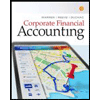A company has 10,000 equity shares outstanding throughout the year (there have been no share issuances during the year). During the year, the Company clocked sales of INR 150 Cr and had an EBITDA margin of 20%. D&A as a % of Capex was 5% and Capex for the year was INR 20 Cr. The company also had debt in its balance sheet to the tune of INR 50 Cr – this was issued at an interest rate of 13%. The debt is convertible into equity with a ratio of 1 equity share for every Rs. 50,000 of debt. The effective tax rate for the Company is 30%. Calculate the Basic and Diluted Earnings per share. [Hint: Factor interest cost in your calculations of diluted EPS] In above question, assume that all information stays the same. However, instead of debt of INR 50 Cr, the Company has issued convertible preference shares of INR 50 Cr and the dividend on these shares is 8%. Calculate the Basic and Diluted Earnings per Share. Compare the Basic and Diluted EPS arrived at in above questions. Explain with reasons as to why one of the diluted EPS (either diluted EPS arrived at in question 1 or diluted EPS arrived at in question 2) should be higher or lower than the other
A company has 10,000 equity shares outstanding throughout the year (there have been no share issuances during the year). During the year, the Company clocked sales of INR 150 Cr and had an EBITDA margin of 20%. D&A as a % of Capex was 5% and Capex for the year was INR 20 Cr. The company also had debt in its balance sheet to the tune of INR 50 Cr – this was issued at an interest rate of 13%. The debt is convertible into equity with a ratio of 1 equity share for every Rs. 50,000 of debt. The effective tax rate for the Company is 30%. Calculate the Basic and Diluted Earnings per share. [Hint: Factor interest cost in your calculations of diluted EPS]
In above question, assume that all information stays the same. However, instead of debt of INR 50 Cr, the Company has issued convertible
Compare the Basic and Diluted EPS arrived at in above questions. Explain with reasons as to why one of the diluted EPS (either diluted EPS arrived at in question 1 or diluted EPS arrived at in question 2) should be higher or lower than the other
Step by step
Solved in 5 steps with 4 images









